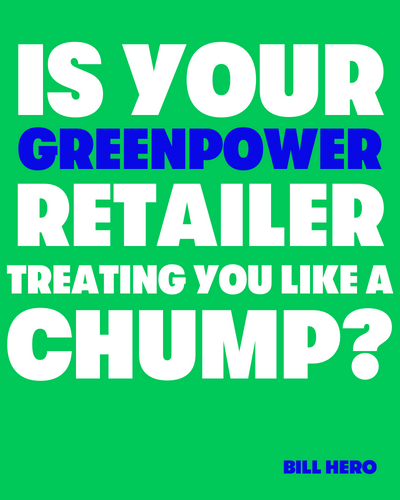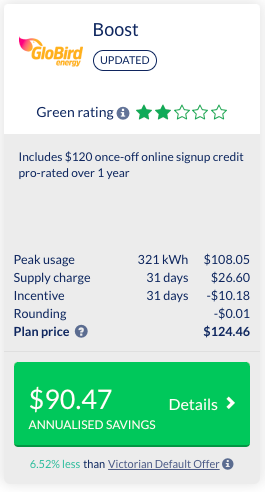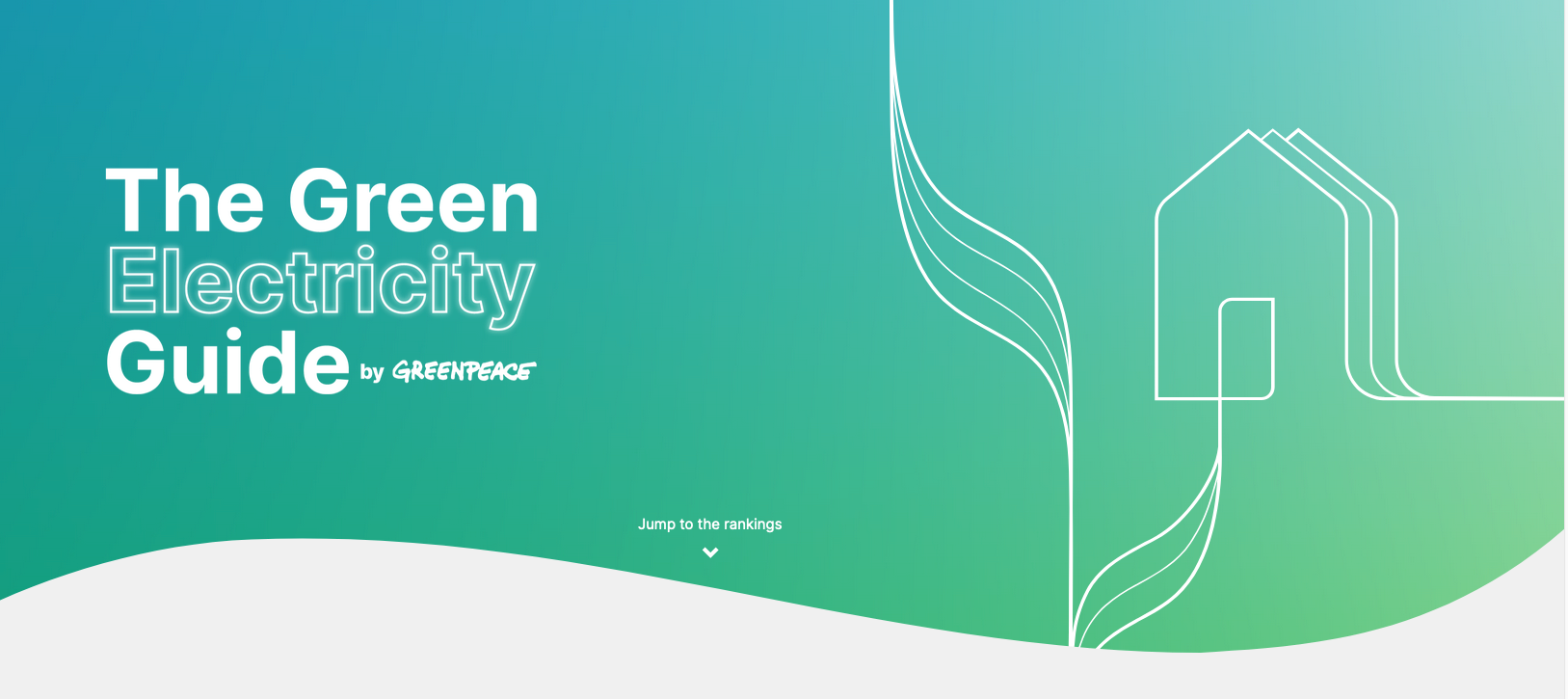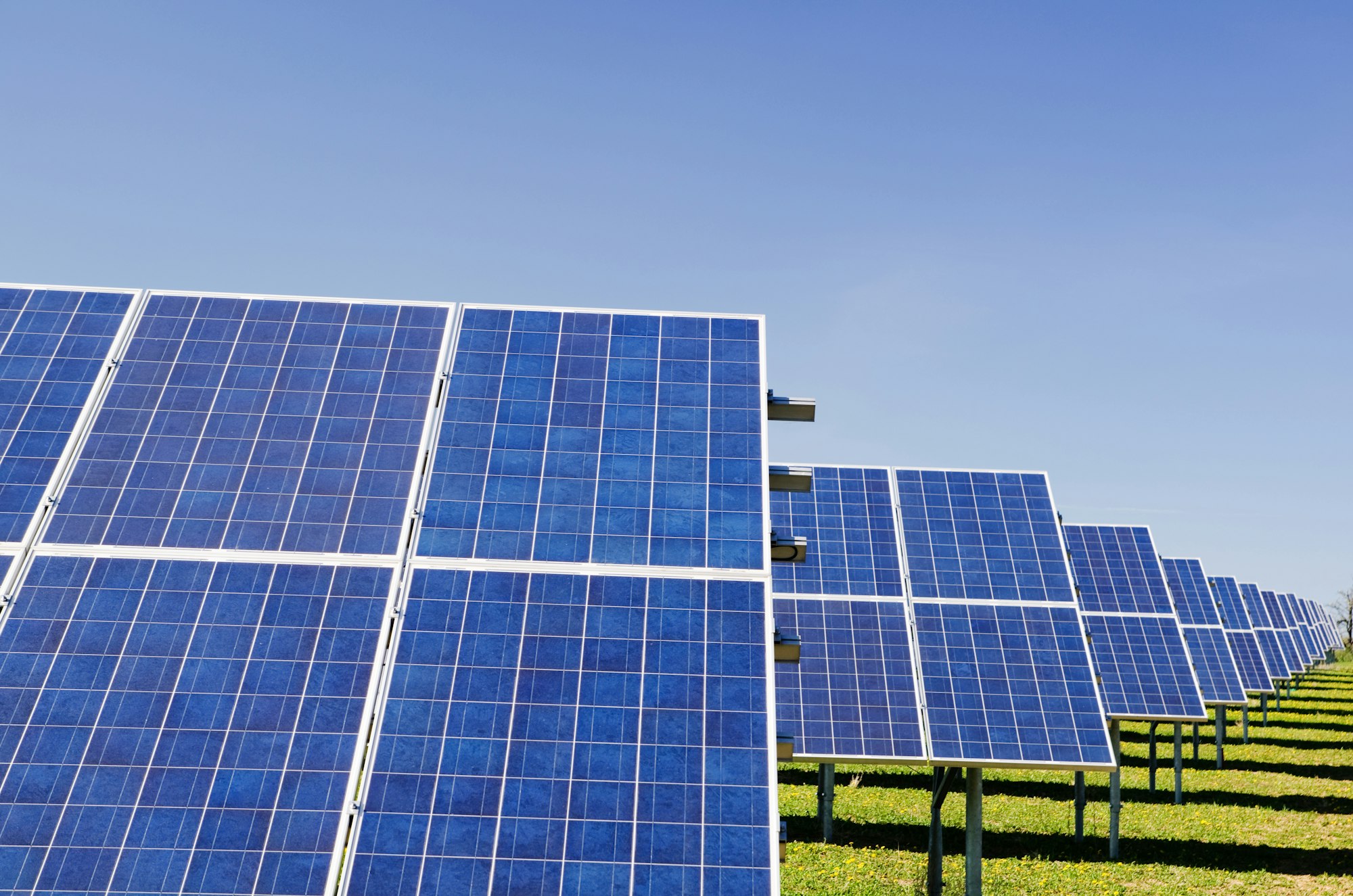Energy Coach - July
It's here - we're in the middle of winter, and most of us are feeling the chill, as well as the pain of high energy bills. Here's our roundup of what you can do to shrink your bills while keeping your home's comfort levels high.
Buying Green energy is a minefield, but Bill Hero will help you find and buy the right Green energy plan from the right retailer, at the right price for you.

Green-conscious energy consumers have long been seen as fair game by the energy retailers, who have used 'greenwash' and predatory pricing to position themselves as 'green-friendly' while maximising their own benefit.
The logic for some energy retailers seems to be that anyone who volunteers to pay more for a basic commodity like electricity or gas is self-selecting as a non-price-conscious consumer, and therefore is fair game for price gouging.
Bill Hero is here to stop all that, with a comprehensive service to make sure you'll get the best value and maximise your green impact for every dollar you spend on energy.

Never overpay for energy again! Bill Hero automatically compares every bill, including GreenPower, to help keep you always on the best priced plan.
Many energy retailers make proud claims to be a 'carbon neutral' operation, or to sell 'carbon neutral' energy.
In most cases, these retailers are doing little more than trying to claim a “get-out-of-jail-free card” through carbon emissions offsetting.
Offsetting means paying someone else for reducing or removing carbon (for example by planting trees) rather than by curtailing or halting your own carbon intensive activities (like running coal- and gas-fired power stations).
While there's nothing wrong with supporting third party efforts to plant trees or pursue other carbon-removal and carbon-abatement activities, offsetting is commonly used by carbon emitters to support and extend their own carbon-intensive activities while claiming 'carbon neutrality' in their PR and advertising.
Even worse, the systems behind measuring the carbon abatement activity by those 3rd party providers has been drawn into disrepute. Prof Andrew Macintosh, the former head of the government’s Emissions Reduction Assurance Committee, said the growing carbon market overseen by the government and the Clean Energy Regulator was “largely a sham” as most of the carbon credits approved and sold for greenwashing did not actually represent real or new cuts in greenhouse gas emissions.
This raises significant questions around the polluters — energy companies are among the worst offenders — which buy carbon credits to offset their environmental impact. The private market in carbon credits was worth $150m in 2021.
Greenpeace and the Total Environment Centre have developed the Green Electricity Guide, which provides the only robust and comprehensive assessment of the average carbon intensity of electricity sold by all Australian energy retailers, which allows energy consumers to cut through the greenwash.
The nature of the interconnected Australian energy grid is that it's impossible to distinguish the generation source for the individual electrons supplied to households and businesses.
However, it is possible to assess the overall carbon intensity of grid-supplied electricity, plus its also possible to assess the carbon intensity of the individual supply arrangements in place for individual retailers - either through direct ownership of renewable or low-carbon energy generation assets, or through power purchase agreements with energy generators.
Bill Hero has adopted the Green Electricity Guide star rating system, to reveal the Green credentials for all retailers whose plans we compare
Retailers that have more renewable generation in their portfolio are reducing the overall carbon-intensity of the electricity they supply to end consumers, so environmentally-conscious energy consumers would do well to buy their energy from those retailers, or conversely, would do well to avoid buying from, and therefore financially supporting, the worst performing retailers which often directly own the most carbon intensive generation assets.

The Green Electricity Guide provides a comprehensive and simple star rating metric to help energy consumers recognise the best and worst performing energy retailers, and Bill Hero has adopted this star rating approach, to reveal the Green credentials for all retailers whose plans are compared in Bill Hero.

GreenPower is the government scheme through which energy consumers can voluntarily pay more for their electricity, and in doing so create an obligation for their retailer to purchase and surrender renewable energy certificates equivalent to the GreenPower energy consumption of their customers.

Note that the payment from green consumers is measured in dollars, but the obligation on the retailers is measured in certificate MWh.
Also note that the dollar payments from the consumer happens immediately, since this fee is charged alongside regular consumption charges in every bill, but the obligation on the retailer to surrender the renewable certificates can be postponed for years.
This opens an arbitrage opportunity for the retailers who collect cash for GreenPower immediately, at prices they set, while gaming the market for renewable certificates to drive down the cost of the renewable energy certificates and extending the time period before they have to pay.
There is a 400% price difference between the best-priced and the worst-priced GreenPower
The practical reality is that some retailers play this price arbitrage opportunity very hard, seemingly in the assumption that any consumer volunteering to pay more for their energy is fair game. For example, there is a 400% price difference between the best-priced and the worst-priced GreenPower energy offered in the market at the time of this writing.
On top of that, some retailers then also play a timing arbitrage where they can and do deliberately postpone their obligation to surrender renewable energy certificates, sometimes by years, presumably in the belief that they can fulfil the certificate obligation in future at better prices than they can today.

There are fines for late fulfilment of the certificate obligation, but those fines can be refunded when the retailer eventually does fulfil its obligation.
Many retailers are deliberately running a certificate shortfall strategy as the costs to them of late surrender are outweighed by the financial benefits.
GreenPower energy consumers should treat their retailers with suspicion
This retailer shortfall strategy has the effect of minimising demand for, and therefore depressing the market price for renewable energy certificates, which negatively impacts the renewable generators who create those certificates in the first place.
The upshot is that GreenPower energy consumers should treat their retailers with suspicion, in the knowledge that the extra money they voluntarily spend may well be going mainly to the benefit of their retailer, rather than to the renewable generators they are trying to to support.


Buying Green energy is a minefield, but Bill Hero can help you find and buy the right Green energy plan from the right retailer, at the right price for you.
Use the Green Rating filter in Bill Hero to filter down the ranked list of alternatives to include only the retailers at or above your preferred Green Rating level.
If you're not sure what is the right level for you, just play with setting the filter higher or lower, so you can see the range of retailers and plans available for each level, and the pricing differences between them.
Then apply your preferred proportion of GreenPower to see which plans meets both of these criteria at the best price.
Be aware that retailers can make GreenPower available for some, or all of your kWh consumption. All of thee participating retailer offer a 100% option, but only some of them offer lesser proportions. If you choose a lower proportion — eg 20% GreenPower — then Bill Hero will display only the plans from those retailers that support a 20% GreenPower option.
You can adjust either dimension up or down to finds the plan you're most comfortable with, secure in the knowledge that no matter what GreenPower and Green ratings setting you choose, Bill Hero will find you the best best priced option.
Savings as a Service is the blog site and newsletter from Bill Hero. Subscribe now and get your energy savings tips and information delivered fresh to your inbox every month.